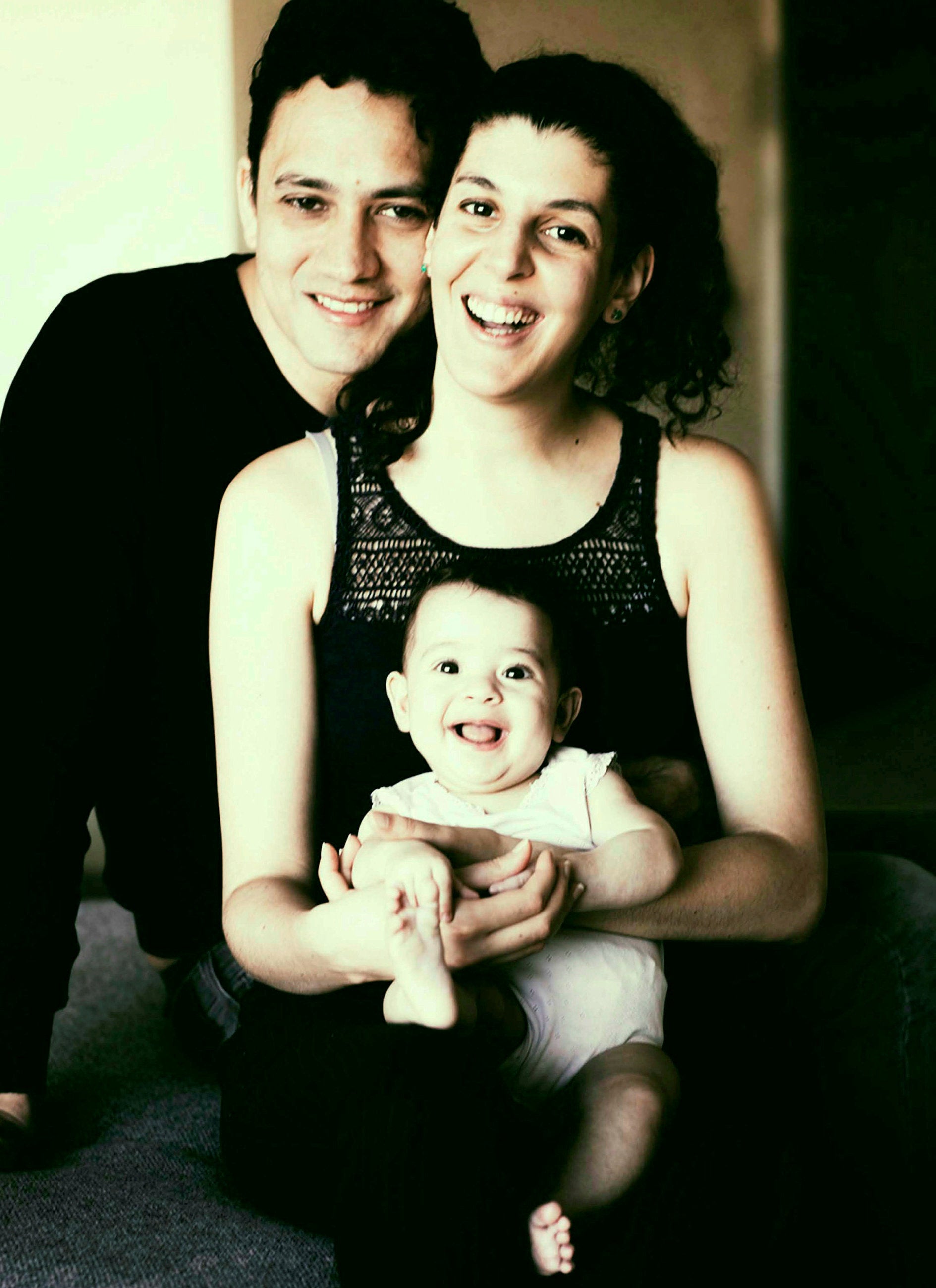Father dies after stage four brain tumour was misdiagnosed as sleep apnoea
The teacher is survived by his wife and two-year-old daughter
A widow has called for greater awareness of the symptoms of a brain tumour after her husband died following a misdiagnosis of sleep apnoea.
Father of one James Lamerton, from Leigh-on-Sea in Essex died aged 40 in November 2021. He is survived by his wife Myriam, 32, and their two-year-old daughter, Layla.
The teacher and musician was diagnosed with sleep apnoea by doctors after complaining of repeated trips to the bathroom during the night and feeling tired.
Myriam said she initially suspected his frequent trips to the bathroom could have been a sign of prostate cancer, which James’ father had suffered from. However the tests came back clear.
James also began to experiences headaches, dizziness and problems with his vision.
The couple visited a sleep clinic, which told them he had sleep apnoea.
The clinic said “his dizziness and headaches were the result of him not sleeping enough,” Myriam said, adding that this “seemed to make sense but between August and mid-October [she] took him to the doctor eight times”.
She recalled one day when James looked “dreadfully pale” so she told him to go to bed and relax, but he felt so poorly he remained on bedrest for seven days.

“Every day I told him he needed to go to the hospital but he insisted on resting,” Myriam said.
“I wish I’d done something sooner but, in truth, I know it wouldn’t have changed anything.”
The couple eventually visited a hospital after James was unable to eat and began experiencing extreme pain in his eyes.
James underwent an MRI scan which detected a stage four glioblastoma – a fast growing and aggressive brain tumour – and a build-up of fluid. Known as hydrocephalus, this fluid puts pressure on the brain and can cause brain damage.
Doctors performed surgery to debulk James’s tumour, but he suffered post-operative complications and died shortly after.
“I held James’s hand as he took his last breath and his heart stopped. He died peacefully, which was kind of beautiful in a way,” Myriam said.
“When you think about death you often think it’s going to be scary and loud but James looked beautiful and healthy from the outside, which is what made it so surreal for us as a family.”
Now Myriam is working with Brain Tumour Research to help raise awareness of the symptoms of the disease.
“We need to change people’s perceptions of brain tumours and for me that means changing the narrative to make people realise that this could also happen to them and the people they know and love. We have to do more,” she said.
As per the latest figures from Cancer Research UK, around 12,300 brain tumours are diagnosed annually. Approximately 5,500 people die from brain tumours per year.
Charlie Allsebrook, community development manager for Brain Tumour Research, commented: “Whilst incredibly heart-breaking, James’ story is not unique; the pain his family are going through is, sadly, something we see time-and-time again.
“We’re trying to change that but it’s only by working together that we will be able to improve treatment option for patients and, ultimately, find a cure. We just hope that people sit up and pay attention because brain tumours are indiscriminate and could strike anyone of us at any time.”
Join our commenting forum
Join thought-provoking conversations, follow other Independent readers and see their replies
Comments





Bookmark popover
Removed from bookmarks